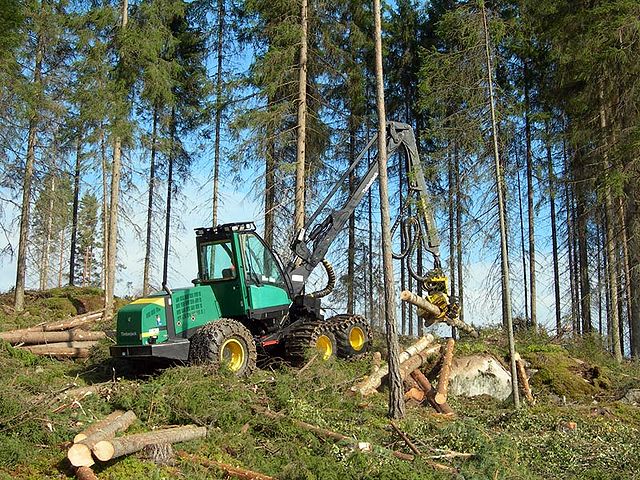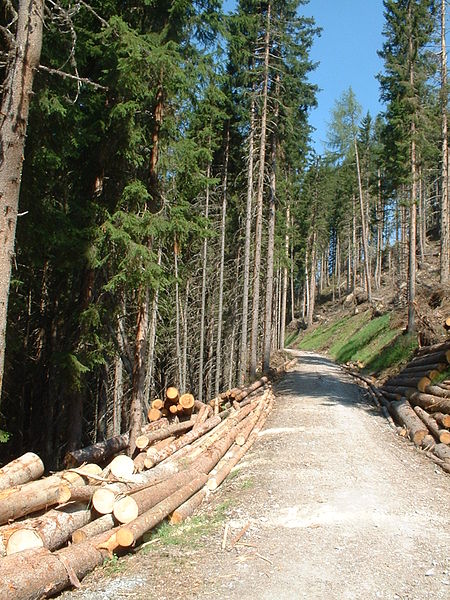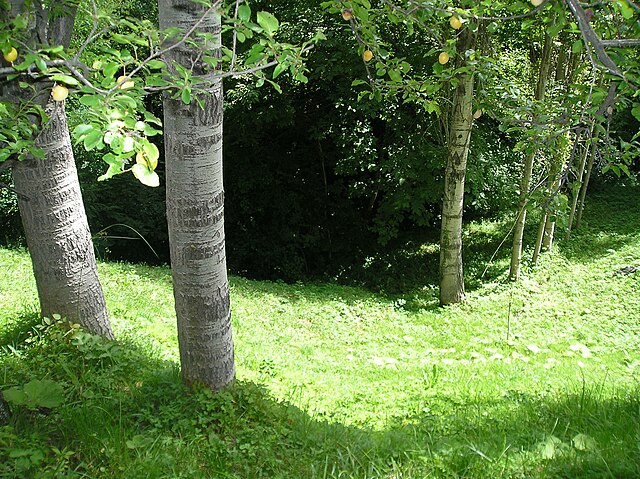Forestry is the science and craft of creating, managing, planting, using, conserving and repairing forests and woodlands for associated resources for human and environmental benefits. Forestry is practiced in plantations and natural stands. The science of forestry has elements that belong to the biological, physical, social, political and managerial sciences. Forest management plays an essential role in the creation and modification of habitats and affects ecosystem services provisioning.
A Timberjack wheeled harvester stacking cut timber in Finland
Forestry work in Austria
Exploitation of brushwood at the Golden Steinrueck, Vogelsberg
Hans Carl von Carlowitz, German miner
A forest is an ecosystem characterized by a dense community of trees. Hundreds of definitions of forest are used throughout the world, incorporating factors such as tree density, tree height, land use, legal standing, and ecological function. The United Nations' Food and Agriculture Organization (FAO) defines a forest as, "Land spanning more than 0.5 hectares with trees higher than 5 meters and a canopy cover of more than 10 percent, or trees able to reach these thresholds in situ. It does not include land that is predominantly under agricultural or urban use." Using this definition, Global Forest Resources Assessment 2020 found that forests covered 4.06 billion hectares, or approximately 31 percent of the world's land area in 2020.
The Amazon rainforest alongside the Solimões River, a tropical rainforest. These forests are the most biodiverse and productive ecosystems in the world.
Forest in the Scottish Highlands
Since the 13th century, the Niepołomice Forest in Poland has had special use and protection. In this view from space, different coloration can indicate different functions.
A forest near Vinitsa, North Macedonia








